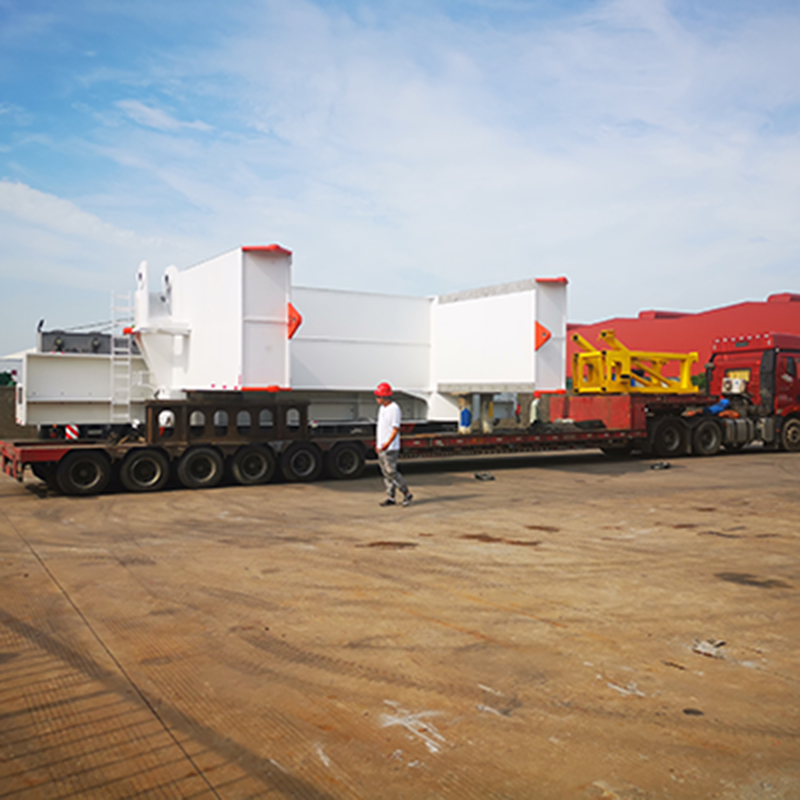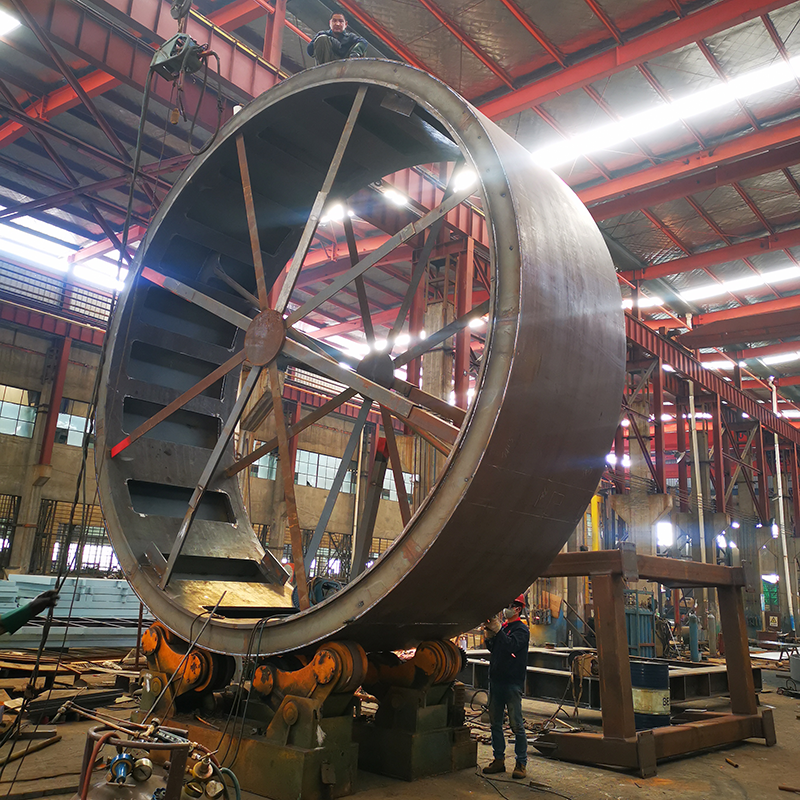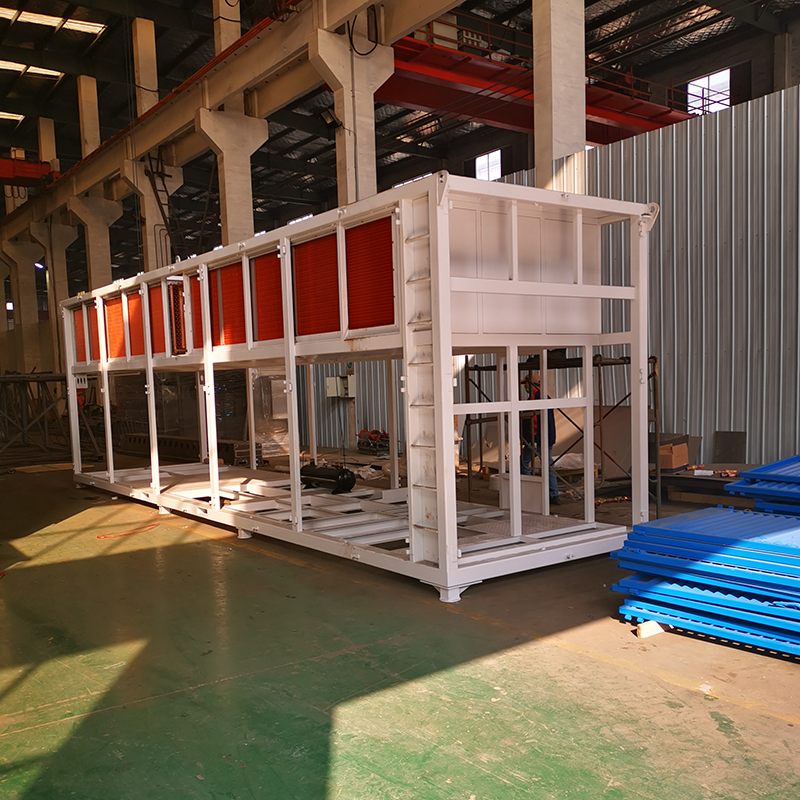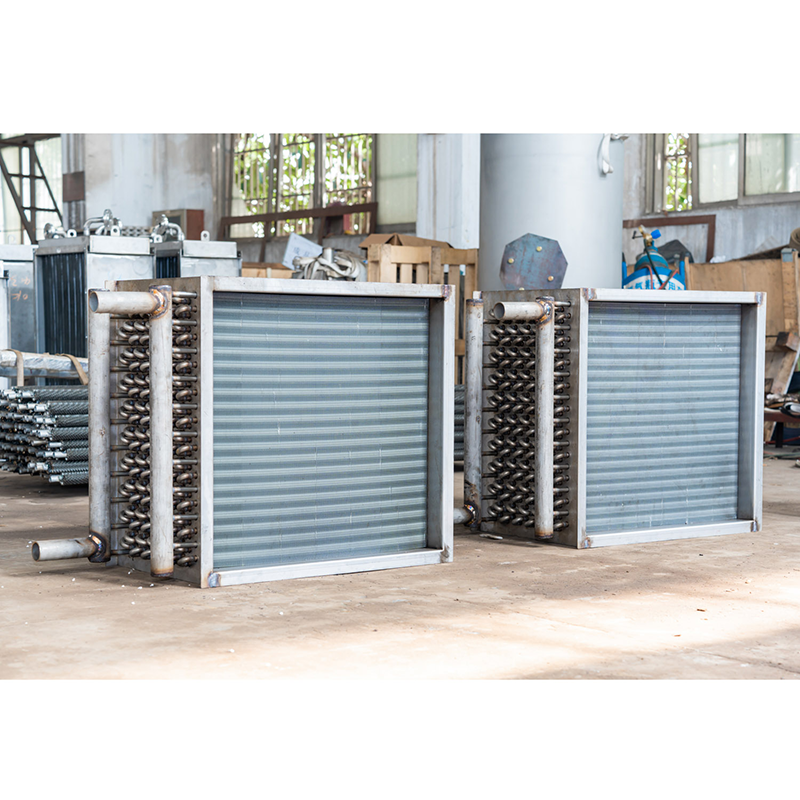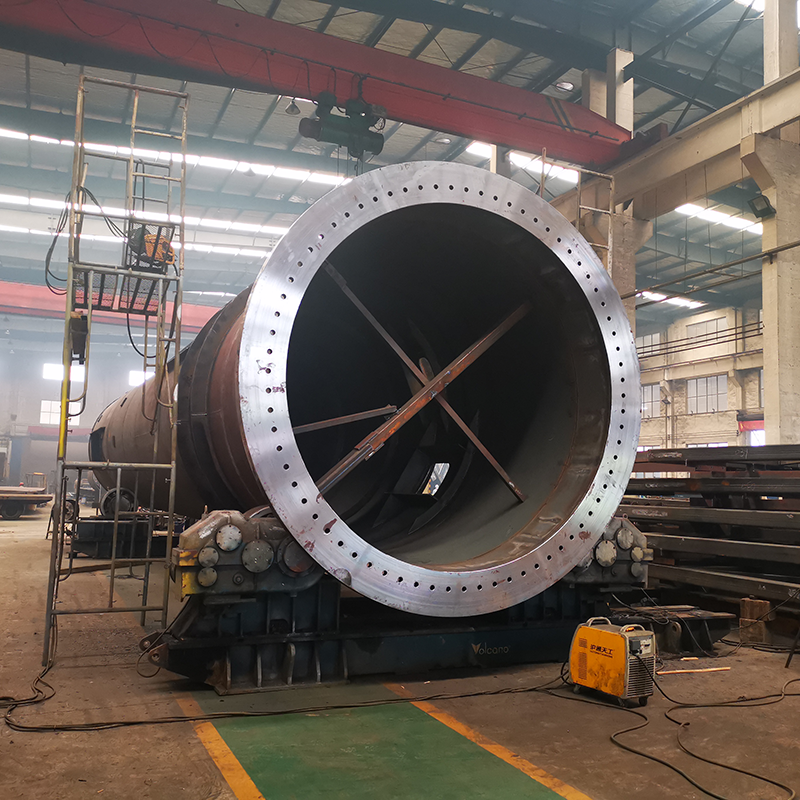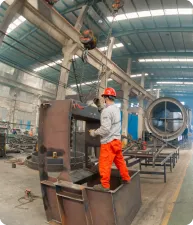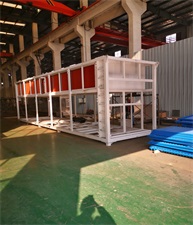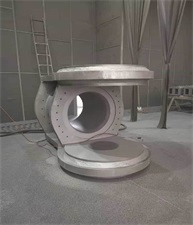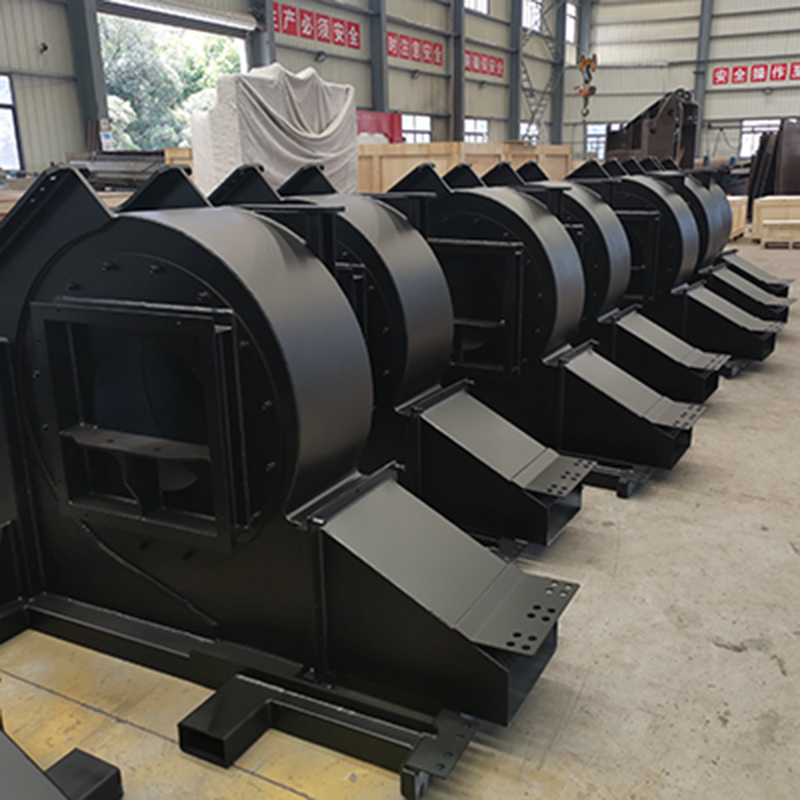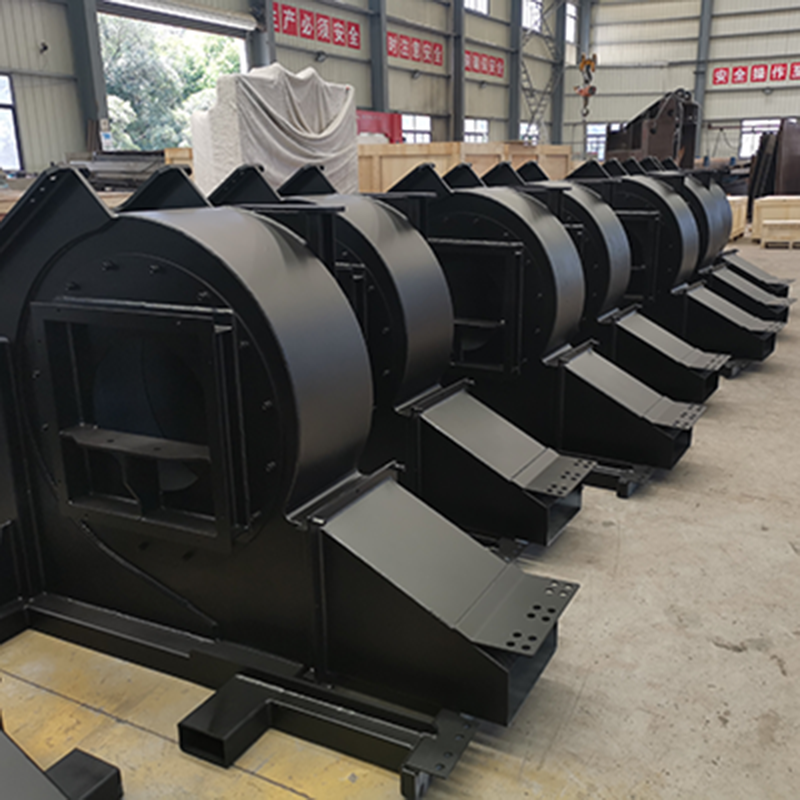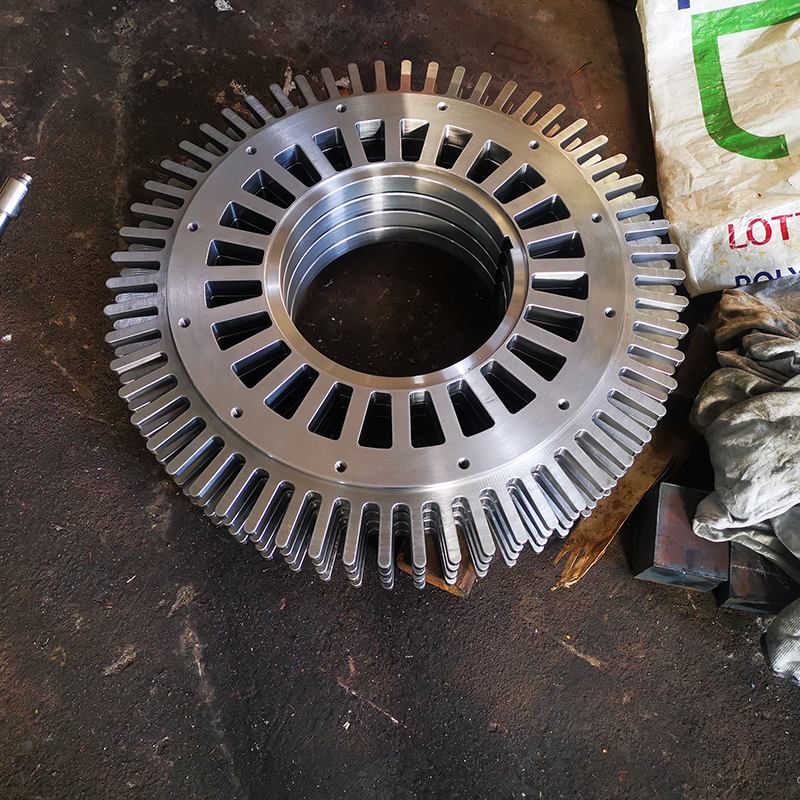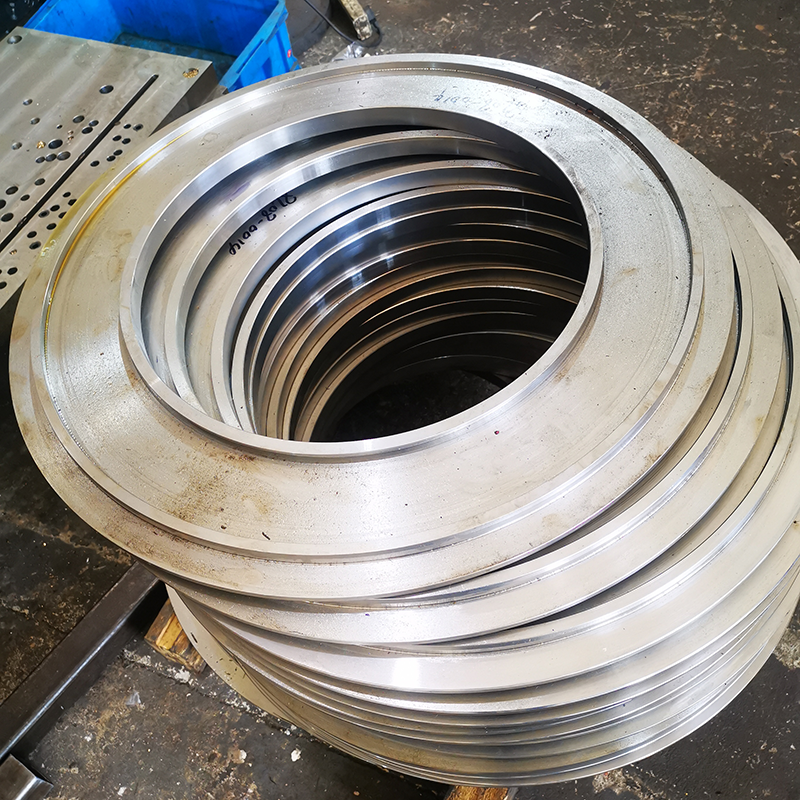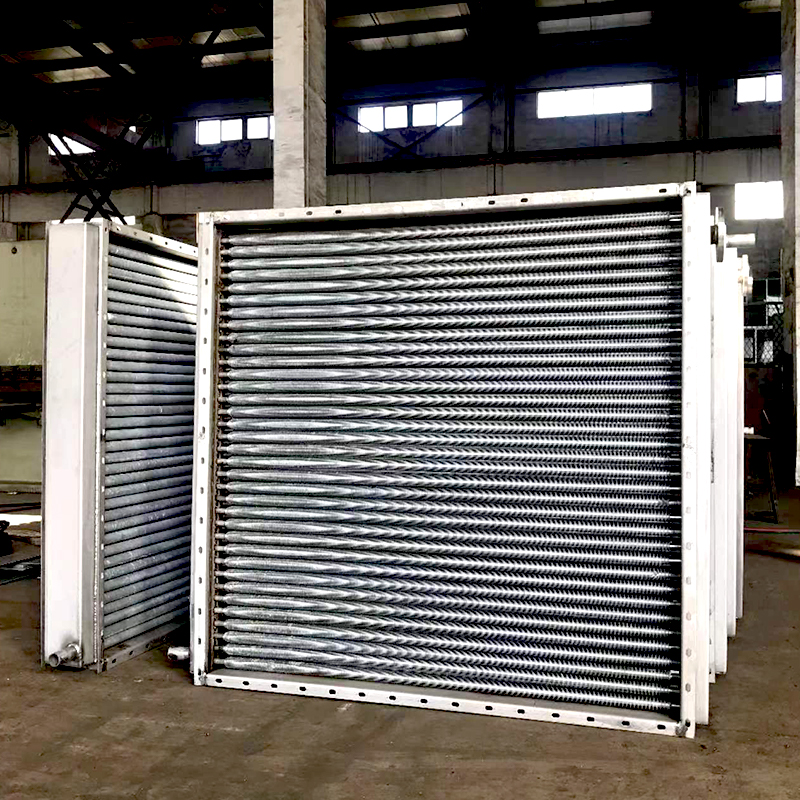Product Details
The wind turbine casing is an important component of the wind turbine, which is the peripheral structure of the wind turbine. Its main function is to protect the internal precision components such as the wind turbine, gearbox, and motor, while providing necessary support for the wind turbine. The fan casing is usually made of high-strength and corrosion-resistant materials to ensure stability and durability in various harsh environments. The design of the fan casing needs to consider the following aspects:
1. Strength and stability: the fan housing must be able to withstand various adverse conditions in nature, such as strong wind, rainstorm, high temperature or low temperature, to ensure the overall stability of the fan.
2. Corrosion prevention: As fans are usually installed outdoors and exposed to wind and rain for a long time, the casing needs to be made of corrosion-resistant materials or undergo anti-corrosion treatment to extend the service life of the fan.
3. Maintenance and repair: The design of the fan housing should facilitate daily maintenance and inspection, ensuring the normal operation of the fan and extending its service life.
4. Noise control: The design of the fan casing also needs to consider reducing the generation of noise to minimize its impact on the surrounding environment.
5. Aesthetics: Although not the main function, the design of fan casings is increasingly focused on appearance to adapt to different environments and aesthetic needs. The manufacturing and installation of fan casings usually require professional technology and equipment to ensure their quality and performance. When selecting a fan casing, it is necessary to comprehensively consider the specific application environment, fan type, and design requirements.
Industrial fans are not an exact concept of fans. Fans can be divided into small household fans, commercial fans and industrial fans according to their different scope of use. Therefore, we can regard industrial fans as other fans excluding small household fans and commercial fans.
Industrial fans include centrifugal compressors, centrifugal fans, axial flow fans, Roots blowers, roof fans, dust exhaust fans, high temperature fans, air conditioning fans, power station fans, fire fans, mine fans, sewage treatment fans, tobacco fans, grain fans, marine fans, boiler induced draft fans and other types.
Characteristics of industrial fans
Industrial fans are mostly used in various high-load working environments. Therefore, the design of industrial fans must focus on their service life, operational safety and reliability. When manufacturing, materials with better size and thickness will also be used. Therefore, compared with commercial fans and household fans, industrial fans have decisive advantages in structure, material and service life.
During use, industrial fans are usually in high-speed operation, which puts high demands on the bearings of industrial fans. Generally speaking, the bearings used in industrial fans are superior to the other two types of fan bearings. They have better performance in strength, wear resistance and temperature resistance, and can work for a long time in complex and difficult-to-maintain environments.
Uses of industrial fans
Industrial fans are mainly used in working environments with complex situations and high operating loads, such as ventilation of tunnels and underground buildings, high-temperature smoke exhaust for fire fighting in metallurgical production plants and mines, etc. In addition, industrial fans are also specially designed for various high-temperature, humid, corrosive and wear environments according to user needs.
Methods to prevent corrosion of industrial fans
Methods to prevent corrosion of industrial fans. As one of the commonly used equipment in industrial production, fans are easily affected by corrosion during use. The fan impeller is the core component of the fan and is seriously affected by corrosion. When selecting the impeller material, the characteristics of the fan working environment, such as temperature, temperature, gas composition, etc., should be considered.
Methods to prevent corrosion of industrial fans. In order to extend the service life of the fan and improve its working efficiency and stability, anti-corrosion measures should be taken to improve the corrosion resistance of the fan.
The functional heavy anti-corrosion coating produced by adding surface active substances, nano rare earth oxides and functional fillers to the anti-corrosion paint has many excellent properties such as strong adhesion, high corrosion resistance, high temperature resistance and high wear resistance through the interaction and synergistic effect of the components in the coating.
Wear-resistant anti-corrosion paint has good adhesion, especially after long-term high-temperature operation and multiple temperature changes, it can still ensure good bonding strength with the substrate and not fall off, ensuring long-term reliable operation of the fan.
Industrial hot air blowers are mainly divided into several categories such as fuel-fired heaters, gas-fired heaters, electric heaters, water-heated heaters, and steam-fired heaters according to their working principles and energy consumption.
Industrial heaters
Construction of construction sites in winter
Due to the lower temperature, the construction progress is slow, and the drying cycle of projects such as concrete pouring and wall painting is long, so they have to stop work in advance, which seriously delays the construction period and causes great losses in construction period, quality and economy. At this time, you can choose an industrial hot air blower to solve the problems of concrete pouring, wall painting and drying, and also solve the problem of heating the working environment. The ambient temperature can be controlled at an ideal temperature, and the construction workers do not need to wear heavy clothes when working, which greatly improves the work efficiency.
Winter heating of factory workshops
my country’s manufacturing industry is well-known all over the world. The workshops of many large factories are built relatively tall, and some may be as high as 8-10 meters or more. Such a tall space uses ordinary heating methods, and the heating effect is difficult to meet the requirements, and it will also cause a lot of infrastructure construction costs and later operation costs. Waste. At this time, you can use our industrial heater in the workshop. The industrial heater is a heating and heating equipment specially developed for large spaces, which can solve these problems of winter heating in workshops. The industrial heater has high power, heats up immediately, and does not need to be installed, which is convenient to move; the industrial heater has a unique advantage in heating workshops and factories, which cannot be replaced by other heating equipment.
Heating of agricultural planting
Greenhouses are energy-saving buildings. Although they have insulation functions themselves, they have limitations. During the day, when the outdoor temperature is high and the weather is good, they can use their own advantages to generate the heat they need for the flowers, plants, seedlings and other plants in the greenhouse without any equipment, and it does not cost anything. But when the sun sets and it is night, and when the ambient temperature is low in winter and the weather is bad, the temperature of the greenhouse is not enough to grow crops. At this time, you need a heater to solve these troublesome problems for you. It has low working cost, convenient control and constant temperature function.
Precautions for using industrial electric heaters
1. Do not place the industrial electric heater directly next to the power socket, and do not touch the heating element inside the heater with your hands to avoid danger.
2. Do not cover the industrial electric heater when it is heating to avoid heat dissipation.
3. Do not use the industrial electric heater near the water to prevent water from splashing on the running industrial electric heater, causing the machine to short-circuit or leak electricity.
4. The industrial electric heater should be stored in a safe place away from flammable materials, and the minimum distance should not be less than 0.5 meters.
5. Do not use the industrial electric heater near flammable objects to avoid fire.
6. Pay special attention to safety when using industrial electric heaters in places where children and animals often appear.
7. Before using the heater, you must check whether the voltage and current meet the machine requirements.
8. Industrial electric heaters must use grounded sockets, and the wires must meet the use requirements of industrial electric heaters.
9. When shutting down, wait until the machine cools down before unplugging the power supply.
10. Unplug the power supply when the industrial electric heater is not in use.
11. When repairing and maintaining the machine, be sure to unplug the power cord to avoid danger.
Contact Information for Fan Housing Inquiries
For more information about Fan Housing or to obtain customized solutions, please contact us:
- Contact Person: Frank
- Tel: 86-510-82305188-8060
- Mobile: 86-18605101203
- Mail: frankgu@cmecwuxi.com
- Address: 15-16F, Building A10, No. 777, JianZhu West Road, Binhu District, Wuxi, Jiangsu, 214072. P.R. China
We look forward to collaborating with you and providing robust support and services for your business.

